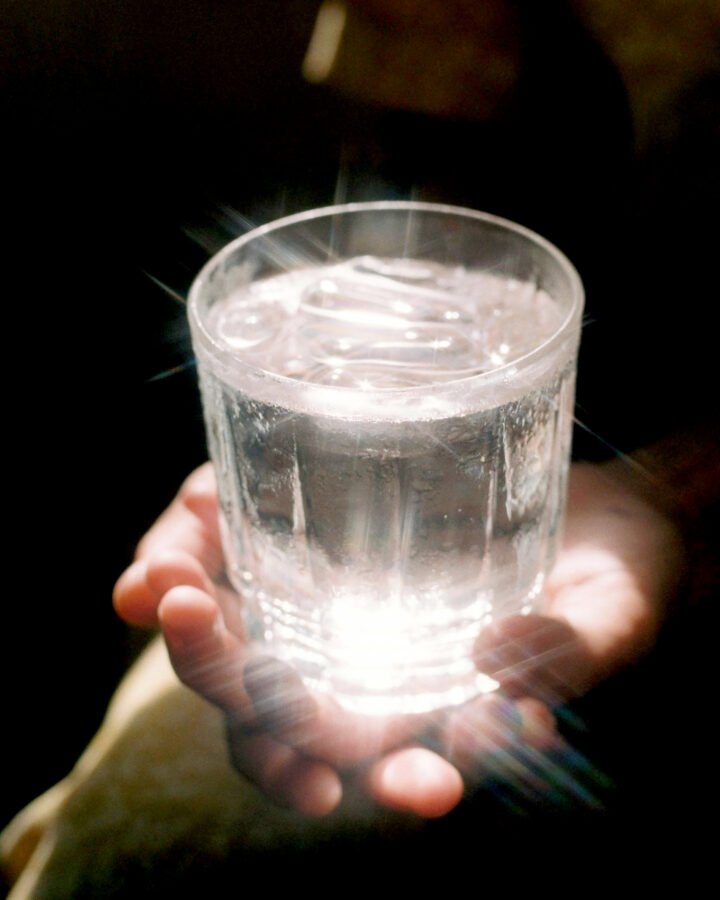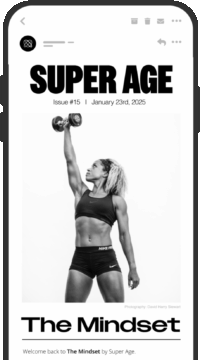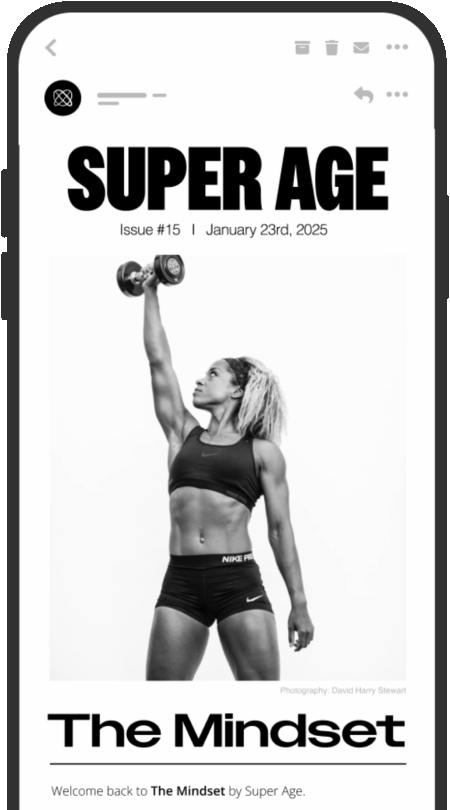How Much Water Should You Drink Daily? Science-Backed Hydration Guide

From energy and brainpower to weight loss and long-term health, here’s what the research really says about staying hydrated.
“We’ve all heard the rules: eight glasses a day, half your body weight in ounces, drink only when thirsty. The advice is everywhere, and often contradictory. But when it comes to hydration, what really matters isn’t a catchy formula, it’s what the science says. Proper hydration sharpens your mind, steadies your mood, supports metabolism, and even lowers your risk for chronic disease. The question is: how much water do you actually need to drink each day to stay healthy, energized, and strong for the long run?
(And, importantly, does coffee count?)
Why Hydration Matters for Brain, Mood, and [lon-jev-i-tee]nounLiving a long life; influenced by genetics, environment, and lifestyle.Learn More
There’s one place where scientists agree on hydration: that it’s critical for your body’s function and health.
According to a 2019 review in Nutrients, proper hydration can
- improve cognitive performance on tasks that require attention, executive function, and motor coordination;
- make you less likely to experience negative emotions like anger, hostility, confusion, depression, and tension;
- fend off feelings of extra fatigue and tiredness brought on by dehydration; and
- help you lose excess body fat.
Other research has shown that not getting enough water could increase the risk of metabolic problems and even chronic disease. So staying hydrated helps you feel your best today and keeps you healthy in the long run.
If you want to stay healthy, happy, and resilient, you need to get enough water. That’s clear. But what, exactly, is “enough water”?
The Truth About the 8 x 8 Rule
You’ve heard it before: drink eight 8-ounce glasses of water a day. That’s 64 ounces., or about half a gallon—just under two liters. This is the 8 x 8 rule.
But where does the rule come from? What’s the science behind it?
Turns out there isn’t any.
In a 2002 review, physiologist Heinz Valtin puts it succinctly: “No scientific studies were found in support of 8 × 8.” (The review is actually quite fascinating, if you’re into that sort of thing.)
Valtin also reminds readers of a crucial, but often overlooked, fact about 8 x 8: “Most of this quantity is contained in prepared foods.” So, even if you do need a half gallon of water a day, you’re already getting most of it from what you eat.
Which means you can also get it from other things you drink, like juice, tea, coffee, soda, milk and so on. Noting here that drinks like soda and juice may also come with added sugars, and excess sugar intake over time can increase your risk of diabetes, cardiovascular disease, and chronic [in-fluh-mey-shuhn]nounYour body’s response to an illness, injury or something that doesn’t belong in your body (like germs or toxic chemicals).Learn More. Keeping sugary drinks to a minimum is a great practice for long-term health. (We’ll talk about caffeine and alcohol in a moment.)
To be clear, there’s nothing wrong with drinking a half-gallon of water a day. There’s just nothing magical about that amount.
If 8 x 8 isn’t the key, then what is?
Watch Our Video Breakdown on How Much Water You Really Need Each Day
How Much Water Should You Drink in a Day?
You can find a recommendation backing up just about any amount of water you want to drink.
- A 2018 study published in Nutrients suggested that drinking less than 1.8L (about 7 1/2 cups) of water every 24 hours could increase the chances of dysfunctional metabolism and chronic disease.
- Another article in Nutrients, this one from 2020, found that increasing mean water intake from 1.3L per day to 2.0L (5.5 to 8.5 cups) per day had “the potential for lowering blood pressure, increasing body temperature, diluting blood waste materials, and protecting kidney function.”
- The National Academies of Sciences, Engineering, and Medicine recommends that men drink about 3.7 liters (roughly 15.5 cups) of total water daily and women about 2.7 liters (around 11.5 cups). This doesn’t just mean drinking water; it includes all fluids and water from food.
- A 2024 meta-analysis found some evidence that increased water intake had benefits for weight loss and preventing kidney stones.
We have a wide range of recommendations here, each with a different set of purported benefits. Somewhere between 1.8L and 3.7L (that’s eight to 15 cups a day) seems to be associated with positive metabolic and functional outcomes.
In the end, the best advice is to listen to your body. If you’re thirsty, drink. If you’re not thirsty, sip on water throughout the day, getting a little here and there to keep your fluid stores topped off.
If something feels off, you may want to drink a bit more.
Feel a little mentally sluggish? Have a glass of water. Not recovering from your workouts as fast as you usually do? Sip on water or a sports drink while you train. Can’t quite kick that cold? Drink extra water or juice for a few days.
It’s that simple.
Electrolytes: The Missing Piece in Hydration
It’s possible to drink too much water and upset your body’s electrolyte balance. Electrolytes are substances that regulate crucial bodily functions, including nerve and muscle function, fluid storage, and regulating your heart. Sodium, potassium, calcium, and magnesium are some of the important electrolytes in the human body.
An acute electrolyte imbalance is rare. For example, you might hear about it if an endurance athlete drinks plain water during a very long, very hot race.
But chronic underconsumption of electrolytes can be problematic, too. Research even suggests that chronically consuming desalinated water could indirectly increase your risk for cancer through electrolyte imbalance.
Adding an electrolyte mix, or even just a little salt, to your water can help prevent this. Remember that you’re getting electrolytes from the food you eat, too. Unless you’re highly active in hot weather, a balanced diet should take care of your electrolyte needs (especially if you drink mineral water or water that hasn’t been softened). But it never hurts to add a bit more, unless your diet is already very high in sodium.
Does Coffee Count? What Science Says About Caffeine and Alcohol
One more note about fluid intake. You’ve probably heard that caffeinated beverages don’t count. But the science doesn’t support that claim. Here’s a clear statement from a 2008 article in Nutrition Bulletin:
“The available studies on hydration found that caffeine intakes up to 400mg per day did not produce dehydration, even in subjects undergoing exercise testing.” The authors note that 400mg of caffeine is about four cups of brewed coffee or eight cups of tea. As long as you’re not exceeding that, there shouldn’t be any effect on your hydration.
What about alcohol?
First, it’s important to note that we recommend not consuming any alcohol if you’re trying to live a longevity-focused life. It’s just not great for your long-term health. If you do decide to drink, though, or you’re talking about hydration to someone who does, we want you to be informed.
Alcohol’s effect on hydration is a little more complicated than caffeine’s. Valtin says that “mild alcoholic beverages like beer in moderation” can also be counted toward water consumption for the day. Wine and spirits? Not so much.
In general, you don’t need to worry much about caffeine and alcohol affecting your hydration (though they do have other effects). If you have wine or a cocktail, have an extra glass of water before or after your drink and you should be fine.
Finding the Hydration Level That Works for You
That’s a lot of research with not a lot of concrete recommendations. Here’s what we can take away from all of that:
- Drink When You’re Thirsty: If you feel thirsty, drink water or another beverage. Don’t go overboard, just have a glass and keep listening to your body.
- Drink More With Exercise and Heat: Sweating means you’re losing water. Drink more to replace it and consider an electrolyte mix or sports drink, especially if you’re exercising in a hot environment.
- Sip When You’re Not Thirsty: “Unless you are doing heavy exercise, it’s better to sip water throughout the day rather than to chug it periodically. You’ll stay more hydrated this way,” says physician and health optimization specialist Dr. Scott Sherr. If you exercise frequently, live in a hot climate, or don’t tend to get thirsty very often, try to be intentional about getting extra fluids throughout the day.
- If You Need a Goal, Eight Cups Works: Around two liters seems to be a common minimum recommendation, and will probably result in increased fluid intake for most people.
Like anything else, it’s worth experimenting with your fluid intake. Try drinking eight cups for a few days. Try drinking 12 cups for a few days. Try paying more attention to your thirst. See what happens and let the results guide your next steps.
Once you find what works for you, stick with it and check in regularly.
Read This Next
The information provided in this article is for educational and informational purposes only and is not intended as health, medical, or financial advice. Do not use this information to diagnose or treat any health condition. Always consult a qualified healthcare provider regarding any questions you may have about a medical condition or health objectives. Read our disclaimers.


